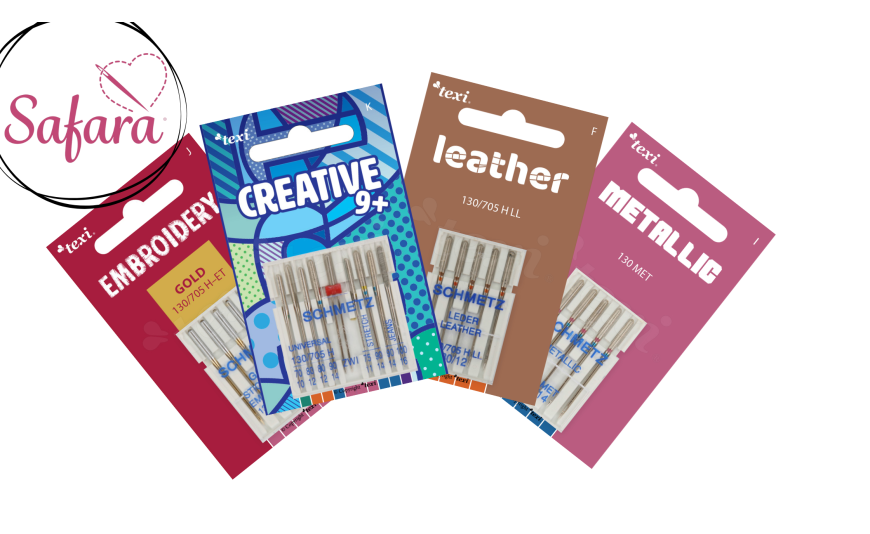The importance of the right needle
- 16 Jan, 2024
- Home

Complete Guide to Sewing Machine Needle Types
When it comes to sewing, one of the most important elements to consider is the needle of the machine. Not all needles are created equal, and choosing the right type can make all the difference in the final outcome of your project. In this guide, we will explore the different types of sewing machine needles, understanding their features and the most appropriate use cases.
1. Universal needle
The universal needle is the most common and versatile type. It is suitable for sewing a wide range of fabrics, such as cotton, linen, silk, and polyester. The pointed end and groove of the same make it ideal for medium and light fabrics.
It can be found in many different sizes and in blister packs with different quantities: you can take a look at our dedicated section at this link. Remember: the lower the fineness of the needle, the better the needle is for thin fabrics. So if you buy a universal needle of 70, you will sew very thin, if you take it of 110, the fabric to sew will be stronger and thicker.
2. Heavy Tissue Needle
If you're working with heavy fabrics like denim, leather, or quilted fabrics, you'll need a sturdier needle. Heavy fabric needles are thicker and stronger than universali needles, allowing them to easily penetrate through thicker fabrics without bending or breaking.
3. Jeans needle
Similar to the heavy fabric needle, the jeans needle is specifically designed for sewing denim and other similar fabrics. It has a pointed tip and a wider eye to make it easier to pass through the thicker thread used to sew jeans.
You can find the jeans needles at this link
4. Jersey needle
Stretchy fabrics such as jersey or lycra require a special type of needle to avoid damaging the fabric. Jersey needles have a thin tip and a slightly wider gap to prevent the fabric from breaking during sewing.
If you are looking for needles for stretch or Jersey fabrics, you can find them here
5. Embroidery needle
If you are interested in embroidery or quilting, an embroidery needle is what you need. These needles have a very sharp tip and a large eye to facilitate the passage of the thicker threads used in embroidery. They are available in various sizes to fit the specific needs of your embroidery project.
Here you can find needles suitable for use with Metallic or Rayon threads, or in any case, with embroidery threads.
6. Twin Needle
Double-tipped needles, as the name suggests, have a tip on both sides. They are ideal for sewing with double thread or for creating decorative seams such as double thread seams. These needles come in different sizes and can be used with a variety of fabrics.
7. Quilting needle
If you're a quilting enthusiast, you'll need a needle designed specifically for this purpose. Quilting needles have a sharp tip and a wide eye to make it easier for the thread to pass through the various layers of cloth used in quilting.
You can find a wide selection of Quilt and Patchwork needles directly at this link
8. Leather needle
Sewing leather requires a needle specially designed to handle this thick and durable material. Leather needles have a sharp tip and a very strong cutting edge to easily penetrate through the skin without damaging it.
If you are looking for a needle for sewing leather, imitation leather or similar fabrics, you can find it here
9. Topstitching needle
The topstitching needle is designed to create decorative seams such as topstitching. It has an extra-wide slot to allow thicker and more visible wires to pass through. It is ideal for sewing decorative seams on pockets, hems and clothing details.
Now that you know the various types of sewing machine needles and their specific uses, you can choose the right type for each project and achieve flawless results every time. Be sure to change the needle regularly and select the one that best suits the fabric you're sewing for the best possible results.
A curiosity: needle manufacturers (the most famous and well-known is Schmetz) recommend changing the needle every 6/8 hours of use! Did you know ? And above all... How often do you change the needle?







